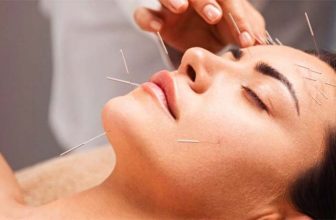
For some, a bodybuilding contest is a far off goal, but in my final year of university, I decided to step on the stage and take part in an amateur student physique contest. Following an intensive training regime and a strict 12-week dieting process, I had learned some valuable lessons about my body, my routine and my diet. Read on to learn about the most important lessons I took away from the process in Bodybuilding as a University Student: 5 Key Things I Learned!
1. Cardio can Help You Improve Your Lifts
For many, cardio and muscle growth are paradoxical. But, aside from improving your overall health, the cardiovascular activity will improve your active heart rate, as well as your lung capacity; allowing you to train harder and longer.
Many experienced powerlifters and bodybuilders swear by controlled breathing during weight lifting and after doing weeks’ of fasted cardio 3-5 times a week, I agree. Aside from improving my overall fitness, my squat and deadlift increased, despite losing weight. With the ability to take deeper, longer breaths I had greater stability in my lifts and could actually exert more power.
2. Carbohydrates are not Your Enemy!
Many diets will tell you to reduce or remove carbohydrate intake to see weight loss, but this has limits. As I gradually reduced my calorie intake through my 12-week contest prep period, my total carb intake took the greatest hit, immediately reducing my energy levels.
Eventually, this led to me finding it difficult to even stand up from the sofa after a particularly long day or gruelling gym session. This was perhaps the greatest reminder that food is fuel, especially with carbs. Burning out from being on a diet is natural but it’s far more likely if you also feel sluggish and exhausted in all areas of your life, not just in the gym.
3. Protein Supplements are not Always Necessary
Most consume protein supplements post-exercise, in addition to their regular diet, with the belief that it will aid recovery and boost growth. However, by having an organised diet, you may not actually need them. By tracking your protein intake, you can break down your goal into set meals, consuming small amounts every couple of hours throughout the day in the form of solid food.
The additional 20 grams of protein found in a shake can be the small boost you need to reach your dietary goal, but if you aren’t consuming enough protein outside of the shake then it will have little effect. A supplement should do just that; supplement, not replace.
4. A Daily Routine is Crucial
As the competition became a key part of my life, I became weary of how this could negatively impact my studies. As a final-year student, I had a big workload attending classes and writing my dissertation. The total hours this would take up was similar to those of a standard 9-5 job with only a small window left for training.
Creating a work-gym balance is difficult. It requires organisation, which may often mean waking up at 5:30am to do morning cardio, then returning to the gym later in the day for weight training. Routines, good or bad, are very easy to fall into and they can occur naturally. Although getting up to immediately do exercise may seem daunting, the hardest part is actually just getting out of bed!
5. Have a Set Goal
Although an amateur bodybuilding show is an extreme goal, the different processes involved are both transferable to regular training and life and can create significant changes in your mental and physical well-being.
It also reiterates the importance of having a definitive goal and a sustainable plan to achieve it – no matter what that could be; tracking your diet and identifying your own weaknesses through planning is more likely to result in long-term success.









